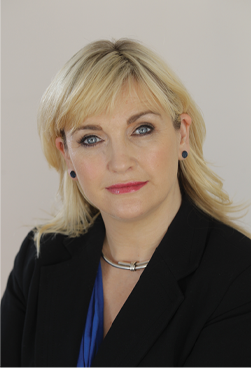Child Poverty: Why it must be a key focus for all parties both now and in the next Assembly mandate

One-in-four children across Northern Ireland are growing up in poverty. Ahead of May 2022’s Assembly election and before the next mandate, key voluntary service providers, dealing with child poverty, have collaborated in extensive research, carried out to inform and urge policy makers of the need to take preventative action.
 Growing up without enough money means that children miss out on opportunities and this widens existing inequalities, writes Action for Children NI’s Sheena McMullen.
Growing up without enough money means that children miss out on opportunities and this widens existing inequalities, writes Action for Children NI’s Sheena McMullen.
Behind the statistics, families are facing hardship and stress each day. The cost of living is increasing and whilst discussions about winter hardship funds are necessary, we risk perpetuating a harmful habit that prioritises crisis-handling rather than prevention.
As we try to recover from an extremely difficult context in the wake of the Covid-19 pandemic as well as instability within our institutions, it is crucial that infants, children and young people are consistently prioritised both now and in the coming mandate.
This means ensuring a safe and stable socio-political environment and a heightened commitment to long-term planning that views poverty prevention as the most important form of early intervention. Without it, our collective wellbeing outcomes will always fall short.
Throughout the pandemic, commitment to collaborative approaches to maximise our ability to reach both those who need support and to inform those with decision-making responsibilities has been encouraging. Cooperative action across services and policy work has proved possible and effective; and we believe this momentum must not be lost.
“It is clear that failures to address the loopholes in the social security system have left too many families vulnerable, forcing them to make impossible choices.” Sheena McMullen, Action for Children NI
For many in the voluntary and community sector, that focus must include meaningfully addressing child poverty. We believe that success or failure to do that will largely determine whether or not many infants, children and young people can find a path, not only to recovery, but to reach beyond that and flourish.
Recently at Action for Children, we have launched a campaign called ‘A Star in Every Child’, referring to their boundless energy, their curiosity, personality, imagination and potential to thrive. We want to emphasise the connection between decisions made at the Executive and all other levels of public life in creating the right conditions for every child and young person to shine. But in reality, it is hard to grow, learn and shine when you’re hungry, cold, scared or alone.
It is clear that failures to address the loopholes in the social security system have left too many families vulnerable, forcing them to make impossible choices. We cannot accept this as normal or ignore the scale of the challenges this creates across all our key services. Family Support Hubs are helping people access Emergency support and witnessing the strain experienced by families each day. It is not sustainable.
We need the Executive to be fully committed to addressing the barriers facing too many families and to ensure that every child has the best start in life and the opportunity to thrive.
As parties begin to prepare for an election year, we are calling all members and organisations to continue working to ensure better policy in poverty prevention for the people of Northern Ireland.
The research is clear, without making important policy choices to prevent and end poverty, we will keep seeing the waiting lists grow, basic needs go unmet and too many infants, children and young people facing avoidable emergencies and inequalities.
Action for Children is asking specifically for the two-child limit to be permanently removed and for a new Northern Irish Child Payment to be introduced as two priority actions that will have considerable impact for families at risk.
Sheena McMullen, Action for Children NI, Campaigns, Advocacy and Policy Advisor
Sheena.mcmullen@actionforchildren.org.uk
Twitter: @mcmullen_sheena
@Actn4ChildrenNI
Money matters
 We haven’t seen enough progress on reducing child poverty in Northern Ireland, writes Save the Children Northern Ireland’s Jerome Finnegan.
We haven’t seen enough progress on reducing child poverty in Northern Ireland, writes Save the Children Northern Ireland’s Jerome Finnegan.
In 2009/10, one-in-four children (26 per cent) were growing up in poverty, by 2019/20, little had changed, with one-in-four children (24 per cent) still growing up in poverty.
Money matters. Growing up without enough money means that children miss out on opportunities that others have and creates huge stress at home. It has a direct impact on children’s early development, education, health, and their wellbeing.
That is why poverty is often the root cause of many of the challenges our public services are facing today. We need to do more to tackle poverty in childhood if we want to release the pressure on stretched public services like our health system.
It can be done. Evidence from all around the world shows that a strong social security system, quality support for parents to find jobs, and investing in key services like childcare and early education can lead to substantial reductions in poverty.
But right now, we’re not making enough progress in these areas, with our social security system in particular seeing substantial cuts in the last several years. In the UK as a whole we spend 25 per cent less per child in social security spending than a decade ago.
That is not a recipe for solving child poverty.
There is an urgent need to invest in our social security system in Northern Ireland. There are two steps that the Executive could take to make historic gains for children: Lift the two-child limit and introduce a Northern Irish Child Payment.
The two-child limit affects 10,000 families. It means that they only receive support for the first two children in their family, which has serious consequences for their incomes. It has plunged 6,000 children into poverty, and will see 11,000 children in poverty by 2024/25.
Lifting the two-child limit would free up much needed financial support for children and their families, and help prevent a rise in child poverty in the coming years.
“If we don’t fix our social security system, the risk is that business as usual will see child poverty rise in the next five years, leading to worse outcomes for children, increasing stress for families, and putting more pressure on our services.” Jerome Finnegan, Save the Children Northern Ireland
But, after years of cuts, we need to see an increase in core financial support for children: Key payments like child benefit are now worth less in real terms than at any point in the last two decades. We just cannot solve child poverty unless we fix this.
That is why we are urging the Executive to follow the lead of the Scottish Government and introduce a Northern Irish Child Payment for all children in families eligible for means tested benefits. A £20 payment would lift 27,000 children out of poverty.
This would be a historic reduction in child poverty, unseen in the almost two decades’ worth of data that we have for Northern Ireland.
But more than that, it would make a profound difference in the lives of children and families in Northern Ireland. Reducing child poverty will improve educational, health and wellbeing outcomes for children, and lift tremendous stress from the shoulders of parents.
This will cost money, but if we do not fix our social security system, the risk is that business as usual will see child poverty rise in the next five years, leading to worse outcomes for children, increasing stress for families, and putting more pressure on our services.
We know what can solve child poverty, what we need to do now is choose to make the investment in children’s futures.
Jerome Finnegan
Policy and Practice Impact Advisor, Save the Children UK
Tel: 028 9043 1123
Children deserve to live free from poverty
 24 per cent of children in Northern Ireland are living in poverty, highlights strategic Director for the National Children’s Bureau, Celine McStravick.
24 per cent of children in Northern Ireland are living in poverty, highlights strategic Director for the National Children’s Bureau, Celine McStravick.
Growing up in poverty restricts a child’s outcomes, from affecting their wellbeing to their educational attainment and future life chances. The coronavirus crisis has no doubt exacerbated these impacts of child poverty, pushing many families to breaking point. All children have the right to thrive and the pandemic has shone a light on deeply entrenched inequalities.
We want to see proactive policies to address the growing inequalities. Every day we hear more about the cost of living increasing and yet Universal Credit payments were reduced. The voluntary sector always step up, often providing a vital lifeline to many families with a range of services such as food banks, debt advice, mental health and family support but children deserve more. Government support is often piecemeal and short term.
Children and families deserve long term systemic support to have a fighting chance.
We have no shortage of promises and strategies in Northern Ireland. The draft Programme for Government talks about children having the best start in life and thriving not just surviving. The 10-year strategy for children sets out aspirations for children with cross departmental outcomes. The Anti-Poverty Strategy is also being drafted and due for release in 2022. Meanwhile, many local councils are also being clear about the impact of poverty on their communities.
“All children have the right to thrive and the pandemic has shone a light on deeply entrenched inequalities.” Celine McStravick, National Children’s Bureau
Poverty needs to be tackled but the solutions are few and far between. Rising insecurity, debt, homelessness and hunger is not the context in which plans to level up disadvantaged communities can succeed.
At NCB we are calling for;
• the Executive to make a clear pledge to end child poverty, with commitments to measure the impact of policies on levels of child poverty;
• the immediate launch of an ambitious and comprehensive cross departmental anti-poverty strategy, including policy interventions that increase and make more secure family and household incomes and strengthening welfare mitigations;
• immediate policy development that responds to longstanding factors that impact on child poverty including the cost of education, housing and childcare;
• all local government community plans to include actions to support children and families living in poverty and clear measurement and reporting of those actions; and
• the development of an anti-poverty commission that can provide leadership and oversee the implementation of the strategy.
We know what a good childhood looks like. It is one in which children have enough to eat, somewhere safe and comfortable to sleep, with the chance to fully participate in society and pursue the things they love.
Northern Ireland should be the best place for a child to grow up. Families should not be living from day-to-day and barely managing to keep heads above water. We owe all of our children a brighter future and we have no time to waste.
Celine McStravick , Strategic Director NCB
E: cmcstravick@ncb.org.uk






